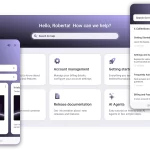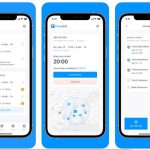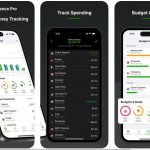With the ever-growing demand for mobile apps, starting an app development business can be a lucrative opportunity. However, turning an idea into a successful startup requires careful planning, execution, and strategy. If you’re looking to launch your app development startup, follow these essential steps.
1. Define Your Niche and Market
Before diving into development, identify your niche. Will you focus on gaming, e-commerce, fintech, or enterprise solutions? Conduct market research to understand user demands, competitors, and monetization opportunities.
2. Create a Business Plan
A well-structured business plan serves as a roadmap for your startup. It should include:
- Business objectives and vision
- Target audience and market analysis
- App development model (native, hybrid, or web apps)
- Revenue streams (subscriptions, ads, in-app purchases)
- Marketing and growth strategy
3. Register Your Business and Secure Legalities
Choose a business structure (LLC, corporation, or sole proprietorship) and register your company. Also, secure:
- App trademarks and copyrights
- User agreements and privacy policies
- Compliance with data protection laws (GDPR, CCPA, etc.)
4. Secure Funding
Determine how you’ll finance your app development startup. Consider:
- Bootstrapping (self-funding)
- Angel investors or venture capital
- Crowdfunding platforms
- Government startup grants
5. Build a Skilled Team
Success in app development requires the right team. Hire or collaborate with:
- UI/UX designers
- Frontend and backend developers
- Quality assurance testers
- Marketing and sales experts
6. Choose the Right Tech Stack
Select the appropriate technologies based on your app’s requirements:
- For Native Apps: Swift (iOS), Kotlin (Android)
- For Cross-Platform Apps: Flutter, React Native
- For Backend: Node.js, Firebase, or Django
7. Develop a Minimum Viable Product (MVP)
Instead of launching a fully-featured app, start with an MVP. It helps validate your idea, collect user feedback, and refine the app before scaling.
8. Market Your App
A great app needs strong marketing to succeed. Utilize:
- App Store Optimization (ASO)
- Social media marketing
- Paid advertising (Google Ads, Facebook Ads)
- Influencer collaborations
- Email campaigns
9. Launch and Gather Feedback
Once your app is live, track performance metrics such as user engagement, retention rate, and downloads. Use feedback to make improvements and introduce new features.
10. Scale and Monetize
When your app gains traction, focus on scaling and revenue generation. Explore monetization strategies like freemium models, subscriptions, or enterprise licensing.
Final Thoughts
Starting an app development business is an exciting yet challenging journey. With the right planning, execution, and marketing strategy, you can build a successful and scalable startup. Stay agile, embrace feedback, and keep innovating. The app world is waiting—take the leap today!






















